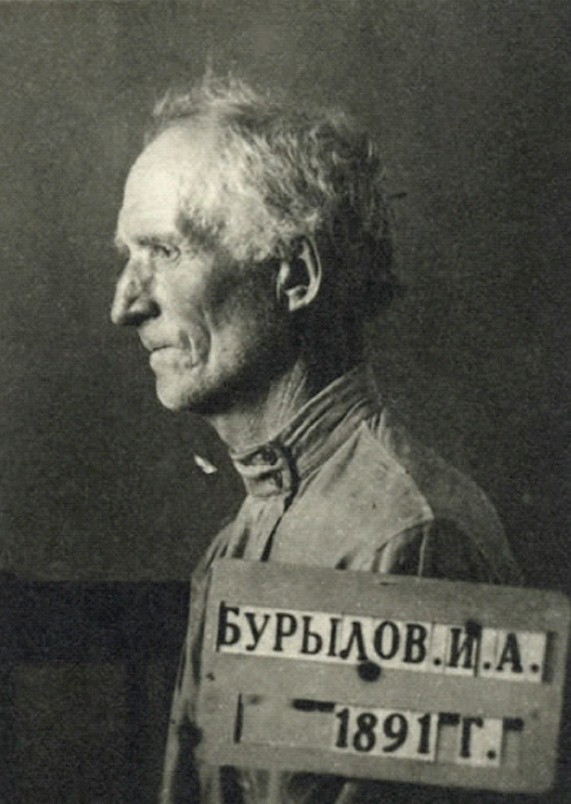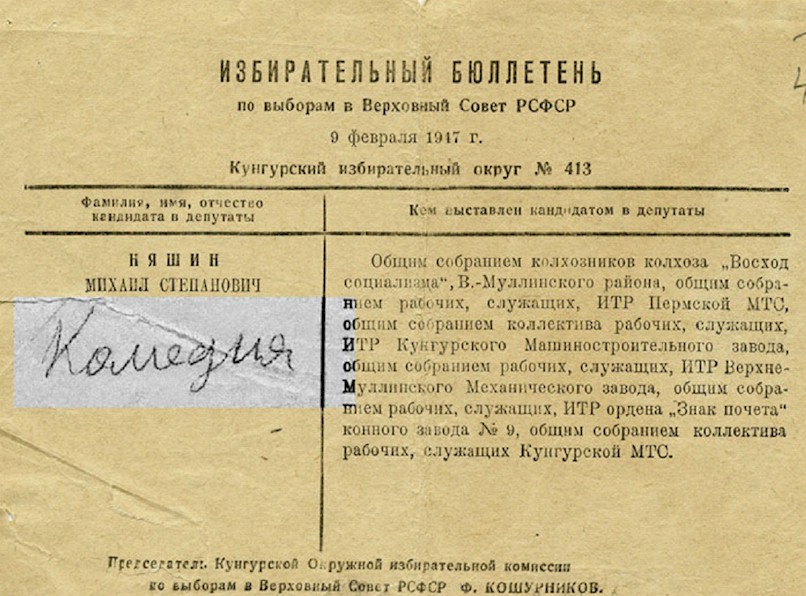The Gulag
English > Context > Historical and political > The Gulag
Labour camps
The labour camps were managed by a special department of the NKVD, theГлавное Управление Исправительно-Трудовых Лагерей и колоний [Glavnoe Upravlenie Ispravitelno-Trudovikh Lagerey i kolony] or Main Directorat for Corrective Labour Camps and Colonies, which was created in 1929 and also well known in the west under its Russian abbreviation ГУЛАГ or Gulag. An estimated 18 million people were imprisoned in labor camps and prison camps across Russia during the Soviet era.
The Gulag held many types of prisoners. It served as the Soviet Union’s main penal system: robbers, rapists, murderers, and thieves spent their sentences not in prisons but in the Gulag.
In addition, the Gulag held political prisoners, a group including not only real opponents of the Soviet regime but also many innocents caught up in the paranoid clutches of the Soviet secret police. Most prisoners were the victims of arbitrary and severe legal campaigns under which petty theft, lateness, or unexcused absences from work were punished by many years in these concentration camps.
To get an idea of the insecure position of Soviet citizens, you should imagine what can happen to you if one of the following happened to you. A person who arrived late at work three times could be sent to the Gulag for three years. Many were sent to the Gulag for up to 25 years for telling an innocent joke about a Communist Party official, and a person could be sent to the Gulag for up to ten years for petty theft.
Maria Tchebotareva
Trying to feed her four hungry children during the massive 1932-1933 famine, the peasant mother Maria Tchebotareva allegedly stole three pounds of rye from her former field which was confiscated by the state as part of collectivization. The Soviet authorities sentenced her to ten years in the Gulag. When her sentence expired in 1943, it was arbitrarily extended until the end of the war in 1945. After her release, she was required to live in exile near her Gulag camp north of the Arctic Circle, and she was not able to return home until 1956, after the death of Stalin. Maria Tchebotareva never found her children after her release.
Ivan Burylov
Seeking the appearance of democracy, the Soviet Union held elections, but only one Communist Party candidate appeared on the ballot for each office. Fear of punishment ensured that nearly all Soviet citizens «voted» by taking their ballot and ceremoniously placing it into a ballot box.
In 1949, Ivan Burylov, a beekeeper, protested this absurd ritual by writing the word «Comedy» on his «secret» ballot. Soviet authorities linked the ballot to Burylov and sentenced him to eight years in camps for this «crime.»
The Gulag economy
A special aspect of the realisations of the Gulag was the role played in the advancement of sciences and the development of weapon systems. Many researchers and engineers who were arrested and convicted for political crimes were put in a privileged prison, a шарашка [sharashka]. The word sharashka comes from the Russian slang expression шарашкина контора [sharashkina kontora] or office of thieves. A sharashka was much more comfortable than a camp of the Gulag. The scientists were obliged to further develop their specialties and some belonged to the world top in their area. One of them was, for instance, Sergei Pavlovich Korolyev (1907-1966), the chief designer of the Soviet space programme and of the first manned spacecraft in 1961, another one was Andrei Nikolayevich Tupolev (1988-1972), the famous airplane designer.
After World War II, the NKVD coordinated the work to be done in the nuclear arms race, under the direction of general Pavel Anatolevich Sudoplatov (1907-1996). The scientists in this programme were no prisoners, but their work was coordinated by the NKVD because it was closely connected to intelligence, so confidentiality was an important issue. And confidentiality, yes, that was the NKVD's specialty.
Share this page |

